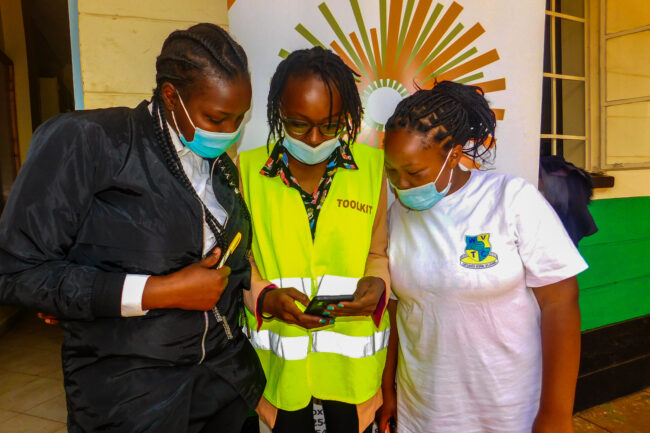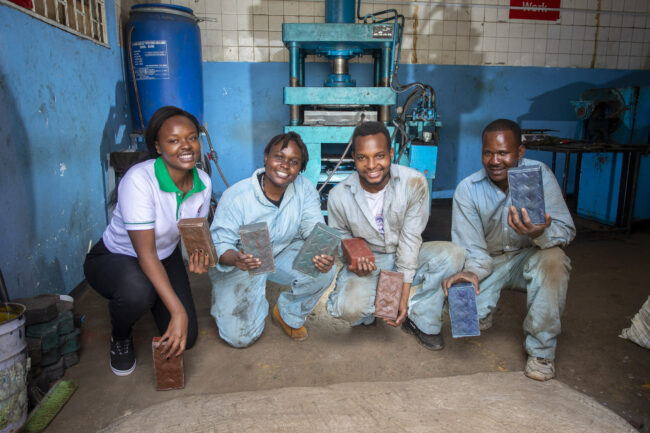Habitat for Humanity is driving green growth in the housing sector by supporting a next-generation construction sector in Kenya and building an inclusive, skilled construction labour market that meaningfully engages youth and women. This project will contribute to sustainable economic development by specifically scaling green job opportunities in the housing construction for Kenyan youth.
The Problem
In Kenya, youth unemployment is 35%, while unemployment among women is 10% higher – a reality exacerbated by cultural and social norms in male-dominated sectors like construction. Annually, the economy does not create enough jobs to match the demand. Housing construction offers an immense opportunity to engage youth in decent employment. The sector, riddled by informality, discourages youth, especially women, from getting involved. Generally, the industry lags in gender inclusiveness, employing less than 3% of women.
When it comes to environmental impact, the next 20 years will be critical for the construction industry as emerging economies invest in infrastructure to meet growing housing demand. Currently, construction contributes approximately 40% of all CO2 emissions worldwide, but the sector is making initial steps to adopt more sustainable and circular solutions. For transformation, systemic changes are necessary through new partnerships and deliberately identifying, investing, and promoting green products and materials. There is also an urgent need for (up)skilling labourers to enable them to become leading agents in driving green growth.
This innovative project focuses on greening the construction sector and improving youth employment, specifically focusing on engaging young women.
The Solution
Habitat for Humanity, with expertise from its Terwilliger Center for Innovation in Shelter, will be partnering with The Toolkit iSkills, Gjenge Makers, and MycoTile to support and link at least 908 youths (34% female) to green jobs. Gjenge and MycoTile present new business models based on waste recycling for green housing products: Gjenge’s paving blocks and MycoTile’s insulation provide alternative, more affordable solutions to realize green construction. The Toolkit iSkills’ model matches and certifies skilled labour in the renewable energy sector.
The consortium will achieve the project’s goals by carrying out the following activities:
- Facilitating increased and sustained incomes for youth and women through improved technical and soft skills and matching them into decent jobs. Activities will include mobilisation, sensitisation and awareness creation, and youth skills training and upskilling. To stimulate decent jobs for skilled youth and women, we will match them to jobs and internship opportunities and onboard them to digital job platforms;
- Increasing the demand, supply, and utilisation of green housing products and services – ensuring demand creation for uptake of alternative building materials which will lead to more jobs;
- Increasing meaningful participation of women and youth in the construction sector with a deliberate focus on safeguarding and decent jobs policies and interventions for youth and women.
Additionality
Support from CFYE will improve the program’s effectiveness and contribute to identifying what works so that the model can be replicated and scaled in Kenya and beyond. CFYE’s expertise in GESI and decent work will be indispensable for creating meaningful and inclusive work in construction. Moreover, CFYE’s contribution will help Habitat for Humanity ensure continued monitoring of the jobs created, matched, and improved.

